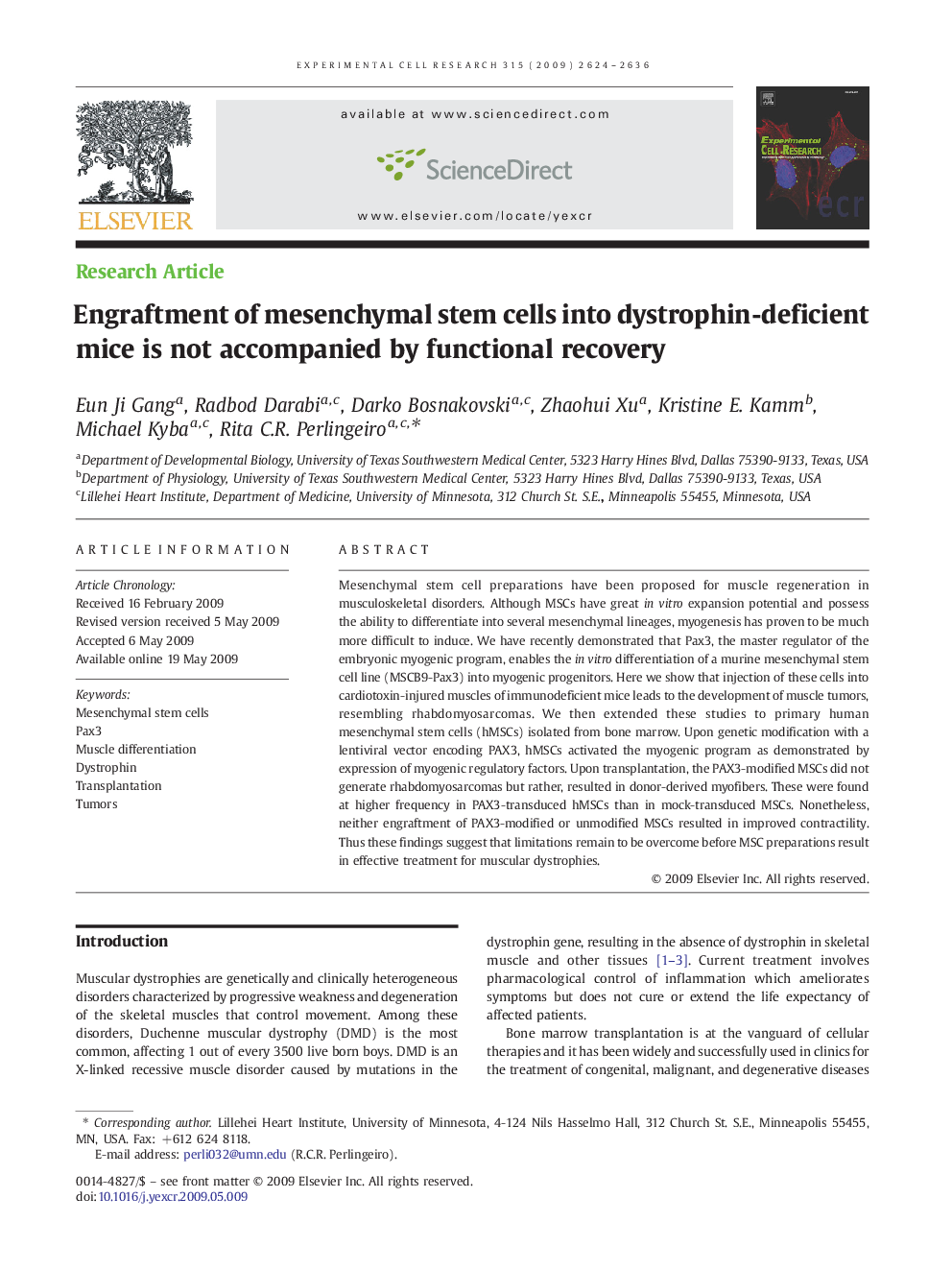| Article ID | Journal | Published Year | Pages | File Type |
|---|---|---|---|---|
| 2131560 | Experimental Cell Research | 2009 | 13 Pages |
Mesenchymal stem cell preparations have been proposed for muscle regeneration in musculoskeletal disorders. Although MSCs have great in vitro expansion potential and possess the ability to differentiate into several mesenchymal lineages, myogenesis has proven to be much more difficult to induce. We have recently demonstrated that Pax3, the master regulator of the embryonic myogenic program, enables the in vitro differentiation of a murine mesenchymal stem cell line (MSCB9-Pax3) into myogenic progenitors. Here we show that injection of these cells into cardiotoxin-injured muscles of immunodeficient mice leads to the development of muscle tumors, resembling rhabdomyosarcomas. We then extended these studies to primary human mesenchymal stem cells (hMSCs) isolated from bone marrow. Upon genetic modification with a lentiviral vector encoding PAX3, hMSCs activated the myogenic program as demonstrated by expression of myogenic regulatory factors. Upon transplantation, the PAX3-modified MSCs did not generate rhabdomyosarcomas but rather, resulted in donor-derived myofibers. These were found at higher frequency in PAX3-transduced hMSCs than in mock-transduced MSCs. Nonetheless, neither engraftment of PAX3-modified or unmodified MSCs resulted in improved contractility. Thus these findings suggest that limitations remain to be overcome before MSC preparations result in effective treatment for muscular dystrophies.
